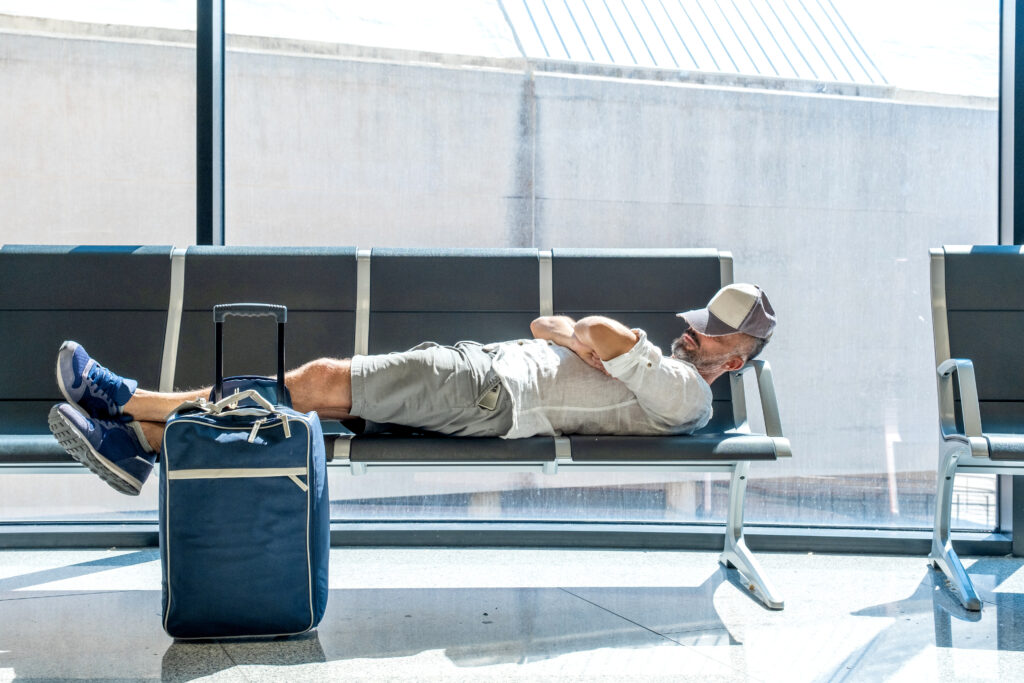A Guide to Safe and Hassle-Free Family Travel
Planning a trip should be exciting, not stressful! But for many, the process of preparing for a family vacation can feel overwhelming. Between coordinating transportation, accommodations, activities, and ensuring everyone’s safety, it’s easy to feel frazzled before even stepping foot out the door.
As a healthcare professional, I know that staying healthy while traveling is just as important as packing the right clothes or booking the best hotel. A little preparation can prevent health issues from derailing your trip. Here’s how you can plan a safe, smooth, and stress-free family trip while prioritizing health and well-being.
Research Your Destination’s Health and Safety Conditions

Before finalizing your trip, check the health and safety conditions of your destination. This is especially important when traveling internationally, but it also applies to domestic travel.
- Check for Travel Advisories & Health Risks: Visit the CDC’s Travel Health Notices and the U.S. Department of State’s Travel Advisories to stay informed about potential risks like disease outbreaks, foodborne illnesses, or political instability.
- Know Common Illnesses in the Area: Some destinations have higher risks of food poisoning, mosquito-borne diseases (like malaria or dengue), or waterborne infections. Knowing what to expect helps you take proper precautions.
- Assess Air Quality & Environmental Conditions: Poor air quality, extreme temperatures, or high-altitude locations may require special considerations, especially for those with respiratory conditions like asthma or COPD.
Advice: If you or a family member has a chronic condition, talk to your healthcare provider about potential risks associated with your destination. Also, consider travel insurance that covers medical emergencies in case you need healthcare services abroad.
Get Recommended Immunizations & Preventative Medications

Many travel-related illnesses are preventable with vaccines and prophylactic medications.
- Routine Vaccines: Ensure you and your family are up-to-date on standard vaccines like the flu shot, Tdap (tetanus, diphtheria, and pertussis), and MMR (measles, mumps, rubella).
- Destination-Specific Vaccines: Depending on where you’re traveling, additional vaccines like hepatitis A, typhoid, yellow fever, or Japanese encephalitis may be recommended.
- Travel Medications: Some destinations require medications for prevention, such as malaria pills for tropical regions or altitude sickness medication for high-elevation destinations.
Advice: Schedule a travel health consultation at least 4–6 weeks before your trip. Some vaccines take time to become effective, and others require multiple doses.
Prepare a Travel-Friendly First Aid Kit
A well-stocked travel medical kit can be a lifesaver in minor health situations. Here’s what to pack:
- Basic First Aid: Band-aids, gauze, antiseptic wipes, antibiotic ointment, tweezers, and medical tape.
- Common Medications: Pain relievers (acetaminophen or ibuprofen), antihistamines for allergies, anti-diarrheal medication, and a fever reducer.
- Motion Sickness & Digestive Aids: If anyone in your family is prone to motion sickness, pack Dramamine or a similar remedy. Antacids and laxatives can also help if you experience stomach discomfort while traveling.
- Prescription Medications: Bring enough for the entire trip plus extra in case of delays. Keep medications in original labeled bottles, and carry a copy of your prescriptions in case you need a refill.
Advice: If you wear contact lenses, bring backup glasses. If you rely on medical equipment (e.g., CPAP machine), confirm your airline allows it onboard and bring a power adapter if traveling internationally.
Know the Location of the Nearest Healthcare Facilities
No one plans to get sick or injured on vacation, but it’s important to be prepared.
- Identify the Nearest Hospital or Urgent Care Center: Know where the closest reputable healthcare facility is located. In case of an emergency, you don’t want to waste time searching for medical help.
- Check if Your Insurance Covers You Abroad: Some health insurance plans don’t cover international care. If needed, purchase travel medical insurance that includes emergency evacuation.
- Learn Local Emergency Numbers: 911 isn’t universal. In many countries, emergency medical services have different contact numbers.
Advice: Download a translation app if you’re traveling to a country where you don’t speak the language. Being able to communicate a medical emergency could be life-saving.
Stay Hydrated & Be Mindful of Food Safety
Traveler’s diarrhea is one of the most common travel-related illnesses, but it’s preventable.
- Drink Safe Water: In regions with questionable water quality, stick to bottled or filtered water and avoid ice in drinks.
- Be Cautious with Street Food: While exploring local cuisine is a highlight of travel, avoid food that’s been sitting out for long periods or isn’t cooked thoroughly.
- Wash Hands Regularly: Carry hand sanitizer for situations where soap and water aren’t available.
Advice: If you do experience traveler’s diarrhea, oral rehydration salts (ORS) can help replenish lost fluids and electrolytes. Keep them in your travel kit.
Take Precautions Against Insect Bites & Sun Exposure
Mosquitoes and ticks can carry diseases, and excessive sun exposure can lead to dehydration or heatstroke.
- Use Insect Repellent: Choose a repellent with DEET, picaridin, or oil of lemon eucalyptus to protect against mosquitoes.
- Wear Protective Clothing: Long sleeves, pants, and hats provide an extra barrier against insect bites and sunburn.
- Apply Sunscreen Regularly: Use SPF 30 or higher and reapply every two hours, especially after swimming or sweating.
Advice: If traveling to an area with high mosquito activity, consider using a bed net at night, and avoid scented lotions or perfumes that attract insects.
Plan for Comfortable & Stress-Free Travel

Long flights, car rides, or drastic time zone changes can impact your health.
- Combat Jet Lag: Adjust your sleep schedule before departure and stay hydrated. Exposure to natural light upon arrival can help regulate your body clock.
- Move Around During Long Flights: Stretch and walk around periodically to prevent blood clots, especially if you have a history of deep vein thrombosis (DVT).
- Bring Travel Comfort Essentials: Neck pillows, compression socks, and noise-canceling headphones can make a long journey more comfortable.
Advice: If traveling with children, bring small activities or snacks to keep them occupied. For elderly family members, ensure they have mobility accommodations if needed.
Final Thoughts: Travel with Confidence
A well-planned trip is a stress-free trip! By taking these steps, you’ll protect your family’s health, avoid unnecessary risks, and enjoy your travels with peace of mind. The key is preparation—whether it’s ensuring you have the right vaccinations, packing essential medications, or researching healthcare access in your destination.
Travel should be about making memories, not managing unexpected health issues. By planning ahead, you’ll be ready for any situation and can fully embrace the joy of your adventure.
Safe travels!

